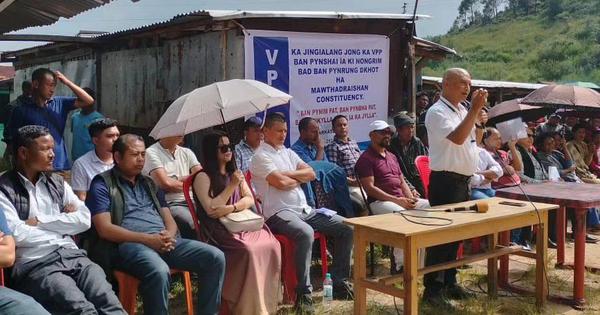
The Voice of the People Party on Monday defeated Meghalaya’s ruling National People’s Party in the Khasi Hills Autonomous District Council elections, PTI reported.
The Voice of the People Party also won the second-highest number of seats in the Jaintia Hills Autonomous District Council polls.
Polling in the two tribal-dominated councils was held last week. The result was announced on Monday.
The Voice of the People Party, led by Ardent Miller Basaiawmoit, won 17 out of the 29 seats in the Khasi Hills council. Chief Minister Conrad Sangma’s National People’s Party won four seats.
While the United Democratic Party secured five seats, the Hill State People’s Democratic Party bagged one. The two remaining seats were won by Independents.
This was the first time that a national party failed to win any seat in the Khasi Hills council, with the Congress and the Bharatiya Janata Party drawing blanks, PTI reported. The Hindutva party is an ally of the state’s ruling NPP.
In the Jaintia Hills council, the Voice of the People Party won 8 out of the 29 seats. The NPP won 13 seats. The Congress and the United Democratic Party won three seats each. The two remaining seats were won by Independents.
The newly formed Voice of the People Party stirred up the election campaign with its demand for Meghalaya to have a provision similar to Article 371 of the Constitution that gives special protections to several states in the North East.
Nearly all of Meghalaya is included under the Sixth Schedule of the Constitution, which gives autonomy to tribal communities in the northeastern states through the mechanism of autonomous district councils.
However, the Voice of the People Party, which is a strident advocate of the interests of the Khasi-Jaintia tribes, has argued that the Sixth Schedule is not enough.
“The Sixth Schedule grants a small degree of autonomy,” party spokesperson Batskhem Myrboh told Scroll earlier this month. “It does not protect us from the laws passed by the central government.”
The party has argued that such laws often go against the state’s culture and traditional political institutions, or its system of land holdings.
In contrast, Article 371A applicable in Nagaland and Article 371G in Mizoram “empowers the state Assembly to pass resolutions declaring that the central law will not be applicable”, the party spokesperson had said.
Also read: Why demand for Article 371 has become a talking point in Meghalaya district council elections

